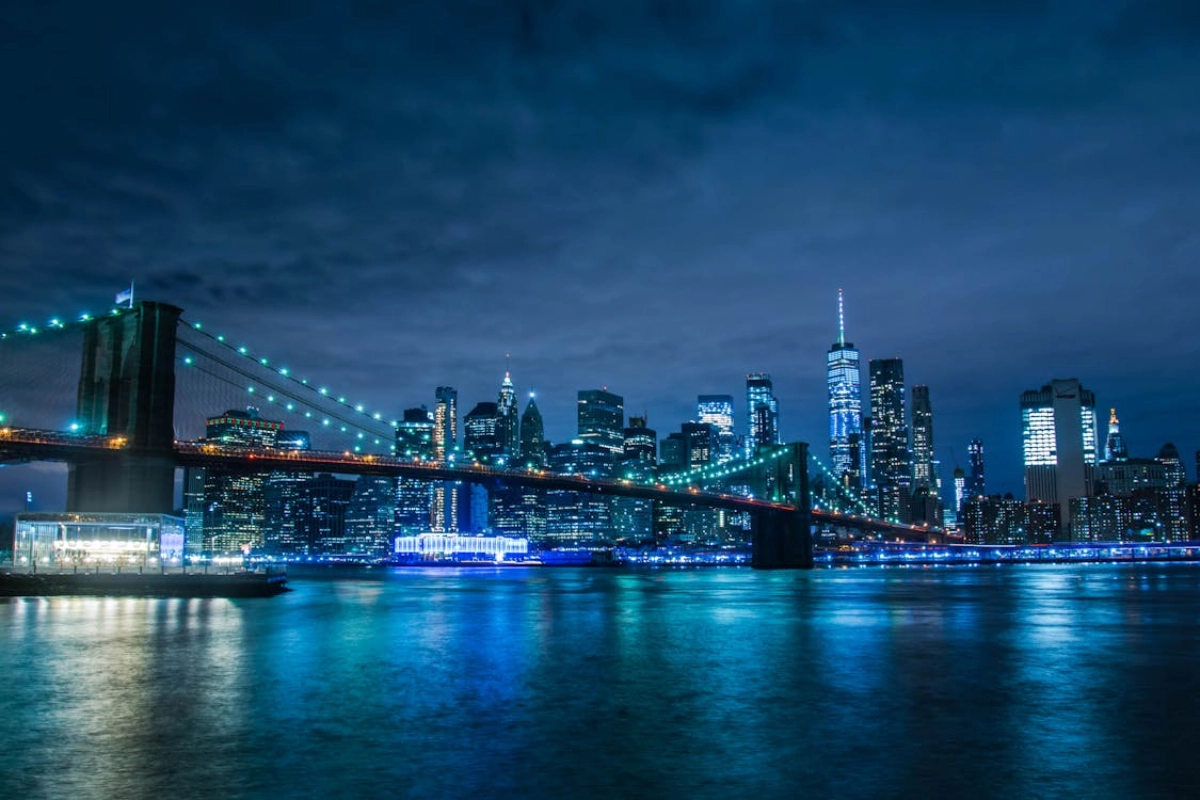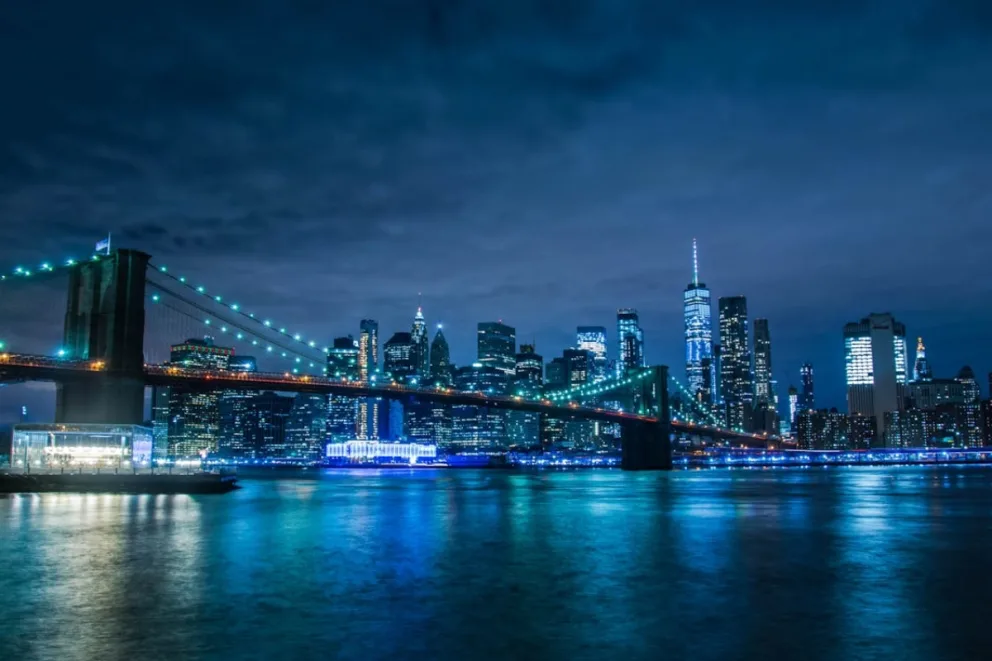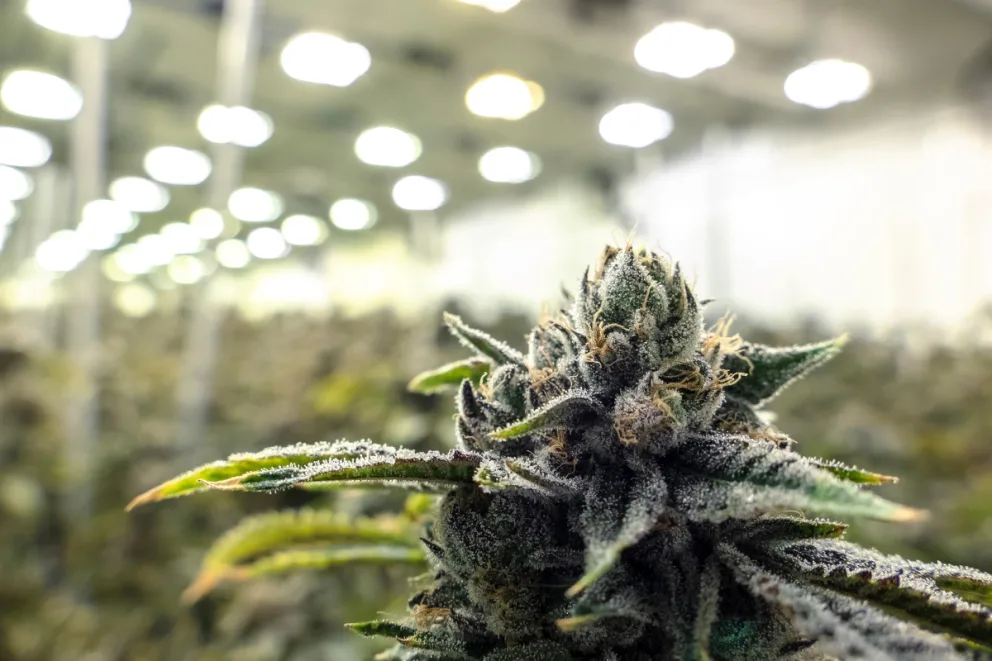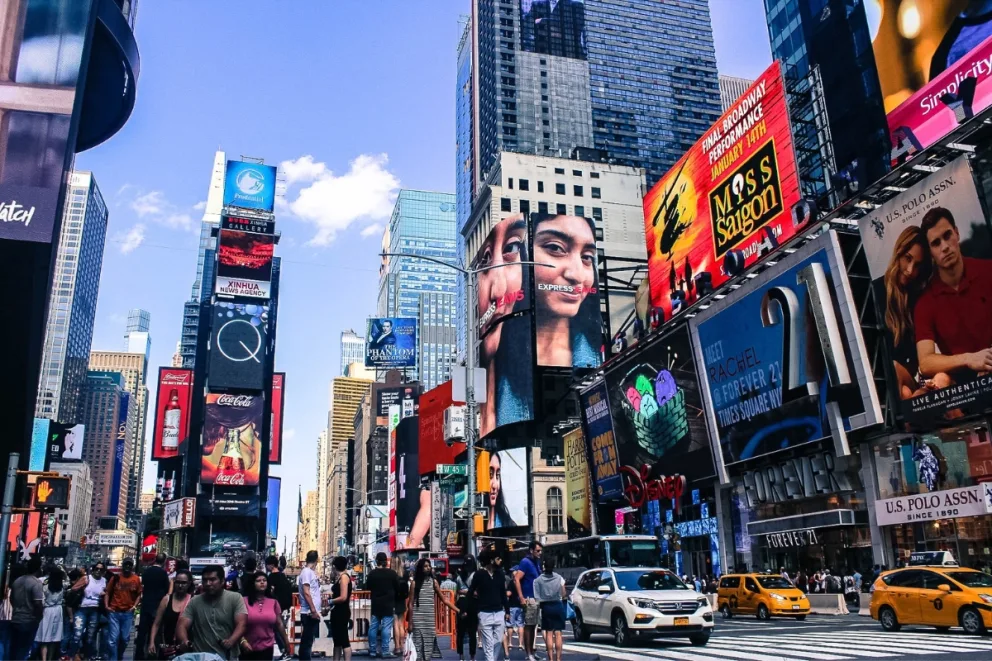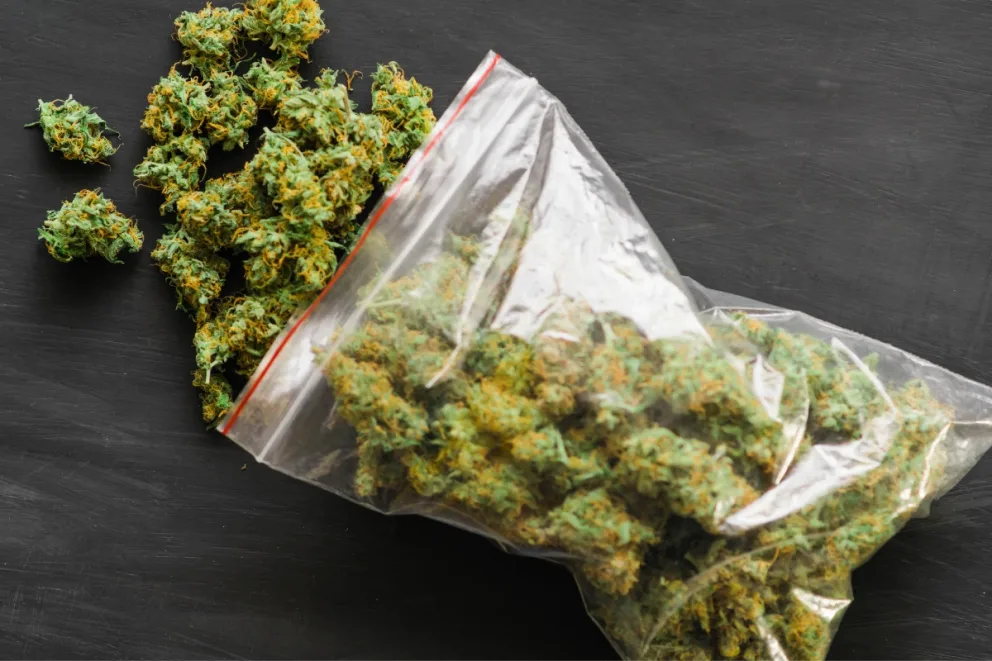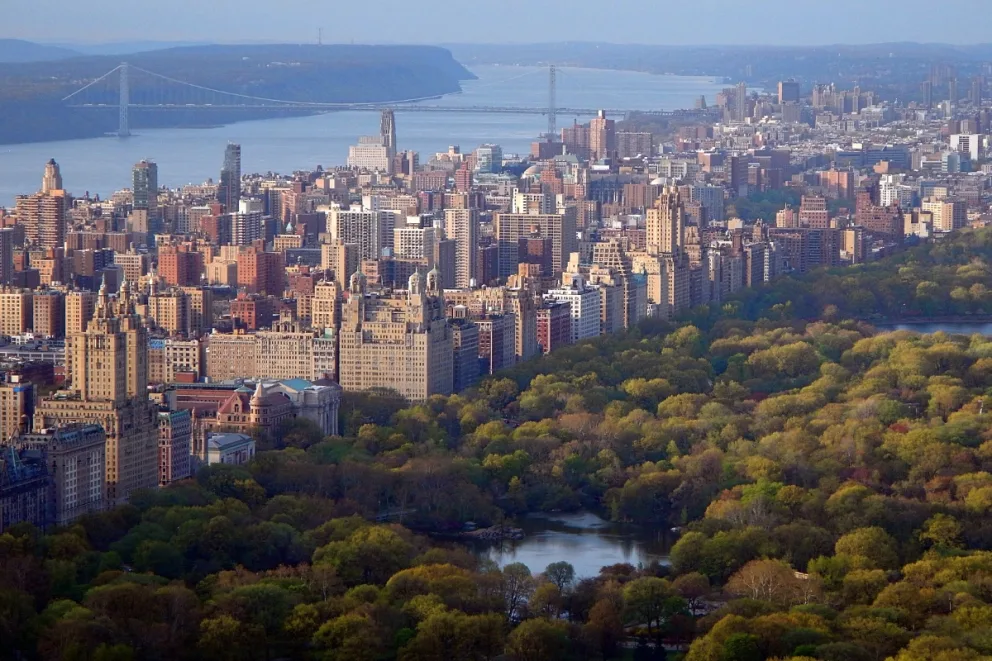Is Weed Legal In New York?
Currently cannabis is legal medically and recreationally in New York. In fact, New York City actually has the honor of being the largest cannabis consuming city, with residents using 62.3 metric tons per year.
New York City also has the 4th highest average price of cannabis in the US. So it’s clear that cannabis is an active part of New York’s bustling economy. What does this mean for New York legally? How do the laws work in New York for city residents, state residents, and people at large?
This post will cover the full scope of weed laws in New York, New York’s medical marijuana program, and all things cannabis so you can make an educated decision about cannabis, how to purchase it legally, and what’s covered by your rights.
Before we deep dive into New York weed laws and cover New York’s weed legalization history let’s briefly cover how cannabis laws work.
How Do Cannabis Laws Work?
Cannabis legalization in the US can exist in 3 different states. Currently, cannabis remains illegal throughout the country but only on the federal level. However, there are three ways states can make cannabis legally available in their state:
- Decriminalization does not legalize cannabis but instead reduces, and in some cases, eliminates the criminal charges of possession. Possession of cannabis can often be considered a felony, specifically possession of a controlled substance.
Decriminalization does not make it legal to use cannabis, just a bit less illegal to use it. This post covers the key differences between decriminalization and legalization.
- Medical Marijuana Legalization makes cannabis legally available to use with a prescription. Often, there are other steps to being able to register to use, and purchase medical cannabis.
States decide what medical conditions are approved for cannabis and many of the logistics and laws governing dispensaries. The nature of these laws can often be why a state may legalize cannabis but it can take as many as 2 years to begin sales.
- Recreational Marijuana Legalization essentially fully legalizes cannabis throughout the state. This also opens up dispensaries to all adults that are legally of age. There can still be caps for how much cannabis a person can obtain, carry, and purchase and in some cases smoking weed or edibles may still remain illegal.
The challenges of cannabis legalization is that quite a few changes must take place before states can open themselves up to legal cannabis sales. There needs to be the establishment of the logistics, taxes, and management of the medical program, dispensary businesses, and how the state will handle cannabis.
Part of why legislation can fail to get passed is certain aspects of these laws might get missed or not fully align with the state government which can mean it gets vetoed or does not get sufficient votes.
Is Recreational Weed Legal In NY?
As of March 31, 2021 The Marihuana Regulation & Taxation Act (MRTA), also known as Senate Bill S854A, made adult-use cannabis (recreational marijuana) legal in New York State. Governor Andrew Cuomo signed this legislation into law which established a new Office of Cannabis Management (OCM) governed by a Cannabis Control Board.
They will comprehensively regulate adult-use, medical, and hemp cannabis. It also established new rules expanding medical marijuana and other laws governing cannabis in the state. You can read a breakdown of the legal changes here.
Is Pot Decriminalized In New York State?
As of August 28, 2019, Cannabis was decriminalized in New York State. Additionally, the signing of the MRTA not only legalizes recreational cannabis, essentially decriminalizing cannabis it also
addresses anyone imprisoned or charged for cannabis possession.
Anyone who was charged or imprisoned under previous cannabis laws whose crimes would have been considered legal under the current law will and many have had their charges expunged.
It’s important to know that as per legislation signed by Governor Rockefeller In 1973, selling more than 2 ounces or processing more than 4 ounces would result in a minimum of 15 years in prison to a maximum of 25 years to life. Now, the average New Yorker could purchase as much legally and possess about as much. Speaking of…
How Much Cannabis Can You Have Legally in New York?
Adults 21 and older can have up to 3 ounces of cannabis flower or bud, or up to 24 grams of concentrated cannabis (such as oils and vapes). It is not legal for anyone younger than age 21 to have, use or share cannabis.
Adults can share up to 3 ounces of cannabis flower or up to 24 grams of concentrated cannabis with other adults age 21 and older for personal use.
It is not legal for anyone to:
- have or share more than 3 ounces of cannabis flower or 24 grams of concentrated cannabis
- sell or trade any amount of cannabis
- give or sell any amount of cannabis to people younger than age 21
[fl_builder_insert_layout id=13138]
Can You Grow Cannabis in New York City?
Thanks to the MRTA, New Yorkers 21 and older can grow up to 6 cannabis plants in their home for personal use (3 mature plants and 3 immature plants) and a maximum of twelve plants per household (6 mature plants/6 immature plants).
However, there are still regulations that must be established before people can purchase and cultivate plants at home. As of January 2024, these regulations still have not been outlined and released but information will likely be available from the state’s Office of Cannabis Management.
When Will Dispensaries Open In New York?
There are currently 83 adult-use or recreational dispensaries in New York. The first legal recreational cannabis dispensary Housing Works in Greenwich Village was opened on December 29, 2022.
There have been challenges to opening dispensaries in New York with roughly 1,500 illegal dispensaries in New York City and 36,000 statewide.
That being said, New York is attempting to encourage dispensaries in New York as there are some tax benefits enacted into law in 2022 that would benefit cannabis businesses in New York.
Are There Recreational Dispensaries In New York?
There are currently 83 recreational dispensaries in New York. You can find a full list of legal dispensaries here.
New York Weed Laws
Cannabis law in New York has been interesting to say the least. In 1914, New York first began to restrict cannabis by requiring a prescription to obtain the drug. This was established by the Boylan Bill which sought to restrict drug use by requiring prescriptions.
In 1927, cannabis fully restricted cannabis. However, it wasn’t until 1951 where there would be a heavy crackdown on cannabis. Cannabis grew throughout New York City. In the summer of 1951, 41,000 pounds of marijuana were uprooted from New York City.
A division of the Department of Sanitation called the “White Wing Squad” under General Inspector John E. Gleason shut down countless illegal marijuana farms and confiscated millions of dollars worth of cannabis and plants the size of Christmas trees. Comically, all of the confiscated cannabis was burned in one mass burning in Woodside Queens.
In 1939, New York Mayor Fiorello LaGuardia assigned a committee to investigate the issue of cannabis in New York and they ultimately refuted the so-called “gateway drug” theory surrounding cannabis at the time.
Despite this view on cannabis in 1973 cannabis was included in the now infamous Rockefeller Drug Laws. Governor Nelson Rokefeller established a law that the possession of 4 ounces and sale of 2 ounces of heroin, morphine, “raw or prepared opium”, cocaine, or cannabis would carry a minimum of 15 years imprisonment with a maximum of 25 years to life.
The Rockefeller Drug Laws are often referenced with regards to the disparity of incarcerations as it was a tool to automatically charge people of color while some people might receive a warning for certain drugs despite cannabis and cocaine being considered the same level by state law.
In 1977, New York decriminalized possession of 25 grams or less of marijuana, to an infraction facing only a $100 fine. However, between 1997 and 2010, the city arrested 525,000 people for low-level possession.
In July 2014, New York Governor Andrew Cuomo signed legislation legalizing cannabis for medical purposes. The Department of Health enacted a medical marijuana program to provide non-smoked methods of cannabis consumption to patients. It was not until the MRTA that medical patients would have access to smoke cannabis.
There were various attempts to continue decriminalization but there still were disparate rates of incarceration and arrest. On July 29, 2019, Governor Andrew Cuomo officially decriminalized cannabis, including for recreational use. While not legalizing recreational cannabis it did reduce cannabis possession to an infraction facing a $50 fee.
Again, in March 2022 the MRTA legalized recreational cannabis, outlined the legal forms of cannabis, made obtaining medical cannabis simpler, and established a plan for expunging the records of people arrested or charged with simple cannabis possession.
New York Medical Marijuana
On July 7th, 2014, Governor Andrew M. Cuomo signed into law the Compassionate Care Act, also known as Senate Bill S7923 to establish a comprehensive medical marijuana program. Within 18 months, New Yorkers, who qualified, had access to medical marijuana.
Medical marijuana was restricted to non-smokable versions of cannabis including oils, lozenges, capsules, and some vapes. With the passage of the MRTA, it’s now easier to obtain a medical marijuana certification and more types of cannabis are available to patients.
What Conditions Are Required for A Medical Marijuana Card in New York?
If you’re curious about obtaining medical marijuana it does require you have a qualifying condition. n. Currently, the list of medical conditions that allow for a medical marijuana prescription in New York are the following:
- Cancer
- HIV/AIDS
- Amyotrophic Lateral Sclerosis (ALS)
- Parkinson’s Disease
- Multiple Sclerosis
- Damage To The Nervous Tissue Of The Spinal Cord With Objective Neurological Indication Of Intractable Spasticity
- Epilepsy
- Inflammatory Bowel Disease (IBS)
- Neuropathies
- Huntington’s Disease
- Post-Traumatic Stress Disorder (PTSD)
- Pain That Degrades Health And Functional Capability
- As An Alternative To Opioid Use
- Substance Use Disorder
- Alzheimer’s
- Muscular Dystrophy
- Dystonia
- Rheumatoid Arthritis
- Autism
- Any Other Condition Certified By The Practitioner*
Are Edibles Legal In New York State?
This may seem like a silly question but some states have made smoking weed or edibles illegal for residents, the goal being to deter people under 21 from using cannabis. Edibles are legal in New York State.
Is CBD Legal In New York?
The 2018 Farm Bill made CBD federally legal. As long as it’s derived from hemp plants which contain less than .3% THC it’s legal to grow and cultivate and its derivatives are also covered under the law.
Is It Legal To Grow CBD In New York?
It is legal to grow CBD in New York. However, CBD is regulated by the Office of Cannabis Management and you must obtain a hemp grower license from the Department of Agriculture and follow the proper regulations governing CBD cultivation. For example, the OCM regulates the CBD to THC ratio that’s legally allowed in CBD products.
Final Thoughts
Throughout its history New York has happened to have the most strict and most lax laws about cannabis at different times in the state’s history. Now, New York City is one of the largest consumers of cannabis and new legislation seeks to make right unfair incarcerations.
Cannabis is legal for adults 21 and over and medical marijuana is readily available to residents. If you think you’d like to get your medical marijuana card in New York, let Green Health Docs make the process even simpler.
With a few simple steps, you can explore the cannabis craze for yourself while also finding the countless medical benefits of the many compounds in cannabis.

